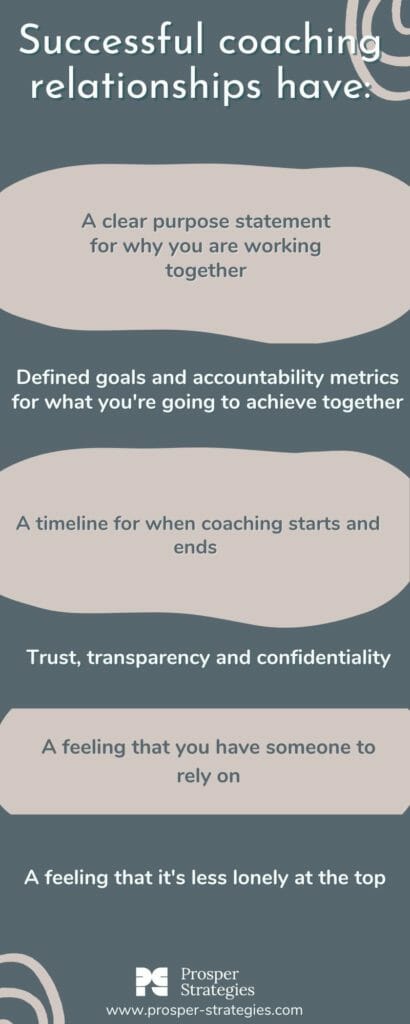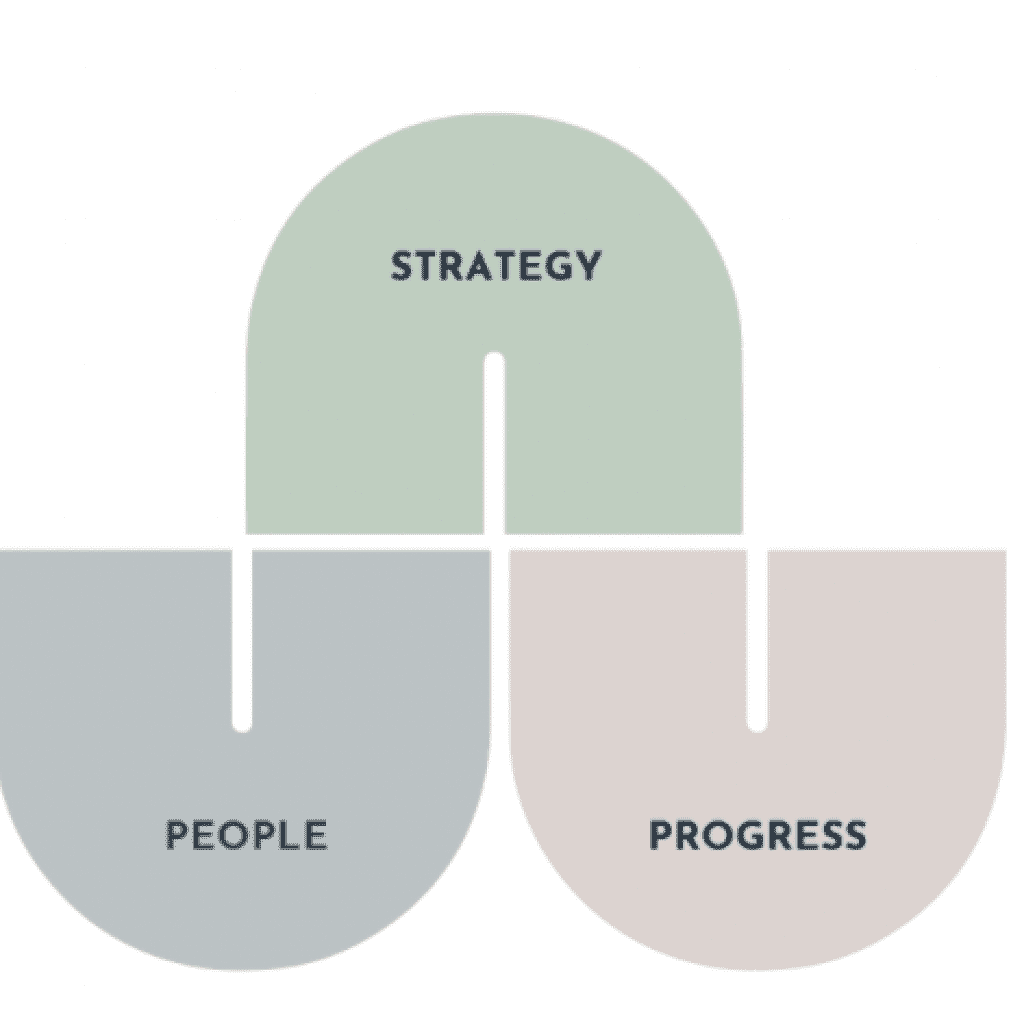They say it is lonely at the top, and there’s perhaps no one who understands this more clearly than a nonprofit leader. You’re managing a team that leans on you for leadership across things like strategy, culture, diversity, equity and inclusion, and mission advancement. You’re managing a board that may not always be as connected with what is happening on the ground as you need it to be, a board that is too high level, or a board that is in the weeds. And, you stay up at night worrying about how, with all of this and more, you will deliver on your mission – because let’s be honest, that’s why you got into this work to begin with!
A nonprofit coach can bring an outside, unbiased perspective. They can help you see the forest from the trees. They can lead you on a path to discovering your leadership style, navigating change and opportunity, and aligning everyone within your organization around a common set of goals. Most importantly, they can hold you accountable for turning your most important goals into achievements.
There’s a reason you’ve heard so many of your peers talking about their nonprofit coach. Today, I’ll go over what a nonprofit coach is (and isn’t) and answer some of the most frequently asked questions we get when approached by those interested in entering a coaching engagement.
- 1. What is a nonprofit coach?
- 2. What does a nonprofit coach do?
- 3. How is nonprofit coaching different from consulting or training?
- 4. Who needs a nonprofit coach?
- 5. When should I hire a nonprofit coach?
- 6. How do I select the right nonprofit coach?
- 7. What do successful nonprofit coach / leader relationships look like?
1. What is a nonprofit coach?
A nonprofit coach is a person who partners with a member or members of your nonprofit leadership team to support them in navigating challenges, delivering results and optimizing impact across your nonprofit’s people, strategies and/or overall progress.
2. What does a nonprofit coach do?
At Prosper Strategies, we lean heavily on our Nonprofit Impact SystemTM method to drive our coaching engagements, but it can also shed light on approaches nonprofit coaches often take with their clients.
People
Nonprofit coaches need to understand your stakeholder landscape and how individuals and groups support or hinder the delivery of organizational strategies. Many begin by having important conversations with you about your people. For example:
- Who does your nonprofit serve? How are these individuals engaged in the decisions that impact them?
- What is the relationship between your executive director or CEO and your board chair?
- Does the board of directors understand its role at your nonprofit? How are staff/board relationships?
- What is the relationship between your development lead and your marketing lead?
- Is your organization siloed or integrated?
- How does staff view your nonprofit’s leadership?
- Are there departments that are posing specific challenges?
- Are stakeholders generally aligned with the direction of the organization?
Many times coaches will also conduct stakeholder interviews and surveys to get a sense not just of your perspectives, as a leader, but the perspectives of those you lead, manage, support, etc.
Understanding your nonprofit’s people dynamics helps nonprofit coaches inherently understand some of your organization’s greatest strengths, weaknesses, opportunities and challenges, as well as how they can support you, as a leader in navigating them.
Strategy
In addition to understanding a nonprofit’s people dynamics, coaches also need to assess a nonprofit’s current strategies (or lack thereof) that the leader they will be coaching is responsible for executing. This typically starts with a deep dive into existing strategic, marketing and fundraising plans, but can include other assessments based on organizational opportunities or challenges.
With a solid understanding of the strategies you already have in place, your nonprofit coach then works with you to identify the areas where you need the most coaching support. They will ask probing questions that lead to self-discovery and self-generated ideas for what you want to achieve. For example, during this phase, many nonprofit leaders identify challenges where they would like a nonprofit coach’s support to tackle, such as:
- Focus as a leader
- Alignment of leadership, staff, board and external stakeholders
- Cross-departmental collaboration
- Change management
- Improved board management skills
- Increased or diversified funding
- Great awareness
- Organizational optimization
Based on an understanding of your organization’s people dynamics and the areas where you need the most support, you and your coach will build a coaching plan in collaboration with one another. This plan identifies your coaching timeline, the purpose of your work together and your goals (which at Prosper we call your coaching pillars).
Progress
The progress piece of a coaching relationship is perhaps the most important because it is where accountability lives. A nonprofit coach works with you to identify how you will measure success toward your coaching pillars (at Prosper Strategies, we use Objectives and Key Results for this). Then, you meet with your coach regularly and they hold you accountable each step of the way.
3. How is nonprofit coaching different from consulting or training?
In a consulting relationship, nonprofit consultants bring deep expertise to their engagements based on helping numerous organizations like yours navigate similar challenges and facilitate important conversations between leaders and stakeholders to develop organizational strategies.
Nonprofit trainers teach proven methods to team members at every level.
Nonprofit coaches help you individually as a leader on a journey of self-discovery to identify your own challenges and elicit your own solutions. Then they support you as you develop the strategies you need to implement those solutions, and hold you accountable each step of the way.
4. Who needs a nonprofit coach?
Generally nonprofit coaches work with nonprofit leaders, including:
- An organization’s executive director and CEO (executive coaching)
- Fundraising leaders
- Marketing leaders
- Operational leaders
- Board chairs
5. When should I hire a nonprofit coach?
- You’re a new executive director or CEO
- Your organization going through a time of change
- Your board is under new leadership or your board has been under the same leadership for a long time
- You’re facing a funding shortfall
- You feel like your culture is toxic
- You want to build more equitable and inclusive strategies at your organization, but you’re not sure where to start
- You feel that you’re not reaching your full potential in your role, and could use support and accountability to get there
6. How do I select the right nonprofit coach?
Chemistry matters in the nonprofit coach / leader relationship. When selecting a coach:
- Learn about their process and method for coaching
- Focus on how they will support you in setting goals and maintaining accountability
- Determine if you want an aligned thinker or a contrarian
- Have several conversations to get a sense for their coaching style before entering into an engagement
7. What do successful nonprofit coach / leader relationships look like?

When you have a successful nonprofit coach / leader relationship, you have:
- A clear purpose statement for why you are working together
- Clearly defined goals and accountability metrics for what you’re going to achieve
- A timeline for when coaching starts and ends (which is not to say you can’t continue on with a nonprofit coach, but definitely don’t enter a relationship indefinitely)
- Trust, transparency and confidentiality
- A feeling that you have someone to rely on
- A feeling that it is less lonely at the top
Do you have other questions about a nonprofit coach we may have missed? Pop them in the comments, or click here to learn more about our nonprofit coaching services at Prosper Strategies.
